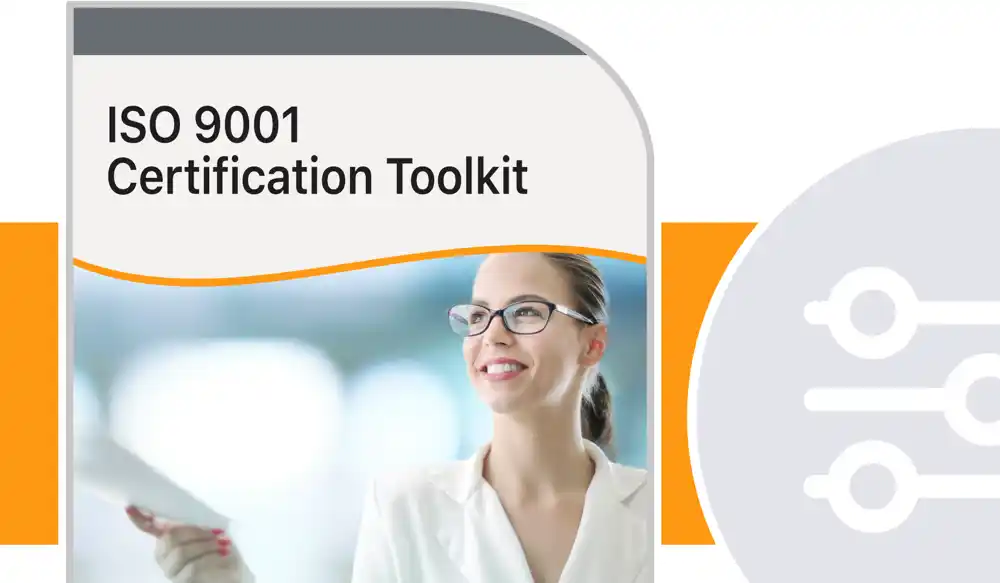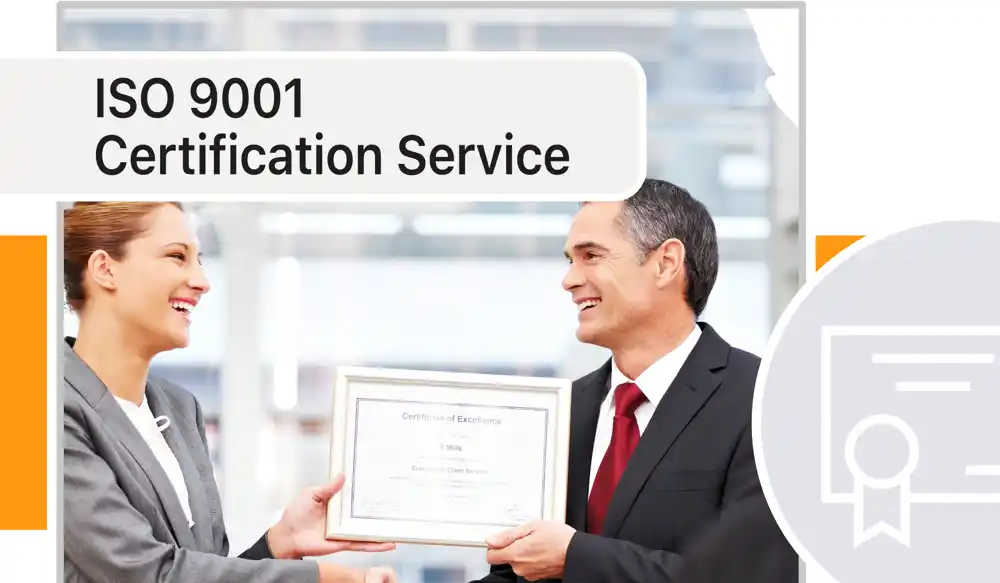The Next ISO 9001 Revision
5 December 2025
The wait for clarity is over. The Draft International Standard (DIS) for ISO 9001:2026 has been released and formally approved by ISO member bodies, clearing a critical milestone. This gives us the first concrete look at the next revision of ISO 9001. While the highly anticipated update doesn't represent a radical overhaul, it introduces key refinements focused on quality culture, ethical behavior, and clearer risk management. This article breaks down the confirmed changes, what didn't make the cut, and provides an actionable transition plan.

The Next ISO 9001 RevisionISO 9001:2026 Revision – Latest Updates
On 27 August 2025, the ISO working group (WG 29) released the Draft International Standard (DIS) of ISO 9001:2026. This version is circulated to ISO member bodies for a final review and ballot. While the DIS is not publicly available, its content is well-known to participating national bodies and experts.
Crucially, ISO member countries have now voted and approved the proposal for this new edition. This formal vote clears the path forward, authorizing the international working group to proceed to the next critical step: addressing the thousands of technical and editorial comments submitted by national bodies from around the world. This comment resolution phase is essential for finalizing the standard's content.
Based on the DIS content and controlled review and voting process, only minor refinements are expected from this stage onward. The final publication of ISO 9001:2026 is projected for September 2026. Following publication, certified organizations will have a three-year transition period (until approximately September 2029) to migrate to the next version of ISO 9001, a timeline subject to formal confirmation by the International Accreditation Forum (IAF).
The Next ISO 9001 RevisionTimeline of the ISO 9001:2026 Revision
The path to the 2026 revision has been unusually complex, marked by surprising reversals and delays.
1 May 2021: ISO's technical subcommittee (TC 176/SC 2) votes to confirm ISO 9001:2015 without revision, following a 2020 user survey.
29 July 2023: In a surprise reversal, ISO announces the immediate start of the revision process after a re-evaluation by a new task force (TG 5) re-evaluation and a ballot of national bodies.
24 January 2024: Working Group 29 begins drafting the new version of ISO 9001 after reviewing suggestions from committee members.
23 August 2024: The first Committee Draft (CD1) is rejected by the ISO Central Secretariat due to structural issues, necessitating a second draft.
3 September 2024: Work on the Second Committee Draft (CD2) begins. Reports that its development was outsourced spark controversy within the standards community.
10 October 2024: ISO/TC 176 officially targets September 2026 for publication, delayed from initial 2025 projections.
14 March 2025: The CD2 closes for comments after incorporating feedback from meetings and virtual sessions.
8 April 2025: Preparation of the Draft International Standard (DIS) begins.
27 August 2025: Draft International Standard (DIS) is released to ISO member bodies for review and ballot.
January 2026: Final Draft International Standard (FDIS) is expected.
September 2026: Anticipated publication of ISO 9001:2026.
September 2026 - August 2027: Certification bodies undergo training and accreditation to offer ISO 9001:2026 audits. Very few certificates will be issued during this time.
September 2026 - 2029: 3-year transition window for organizations moving from ISO 9001:2015 to ISO 9001:2026 (subject to IAF confirmation). Both ISO 9001:2015 and ISO 9001:2026 certificates are valid.
September 2029: ISO 9001:2015 standard is officially retired.
The Next ISO 9001 RevisionWhat's Changing – and What Isn't?
The DIS reveals a standard that evolves rather than revolutionizes. While the document's length increases, most additions are in the non-mandatory sections (front matter and Annex A) which provide implementation guidance. The core requirements (Clauses 4-10) feature only minor changes, meaning a minimal transition burden for organizations already compliant with ISO 9001:2015.
Key Confirmed Changes in the DIS
1. Integration of Climate Considerations
The 2024 amendment has been formally integrated into Clause 4.1, requiring consideration of climate change as a factor in the organization's context. The requirements have not been expanded.
2. Expansion of Leadership Responsibilities
Clause 5.1.1 now explicitly requires top management to promote and demonstrate a quality culture and ethical behavior. The new 2026 revision includes new guidance on how these can be demonstrated.
3. Tweaks to Quality Policy
The quality policy must now explicitly "take into account the context of the organization and support its strategic direction," strengthening the link between the QMS and business strategy.
4. Clarified Risk and Opportunity Management
The 2026 version of ISO 9001 reorganizes Clause 6.1 into sub-clauses (6.1.1 - 6.1.3) to provide a clearer separation between actions for addressing risks and pursuing opportunities. Annex A features significantly expanded guidance on both concepts.
5. Expansion of Awareness
Clause 7.3 adds a new awareness requirement for employees to understand "quality culture and ethical behaviour."
What Isn't Changing: Expectations vs. Reality
Many anticipated changes from the 2021 user survey have not materialized in the ISO 9001:2026 revision. The DIS shows no significant new requirements for emerging technologies (AI, digital transformation), sustainability beyond climate change, enhanced supply chain resilience, or strengthened service sector requirements. The mandated Annex SL high-level structure has limited radical innovation. The revision primarily maintains the 2015 version's core framework, process approach, and fundamental requirements, focusing on editorial improvements and clarifications rather than the substantive advancements many stakeholders had anticipated.
The Next ISO 9001 RevisionImplications and Action Plan: What You Should Do Now
The most important thing to know is that ISO 9001:2015 certifications remain fully valid until late 2029. The upcoming ISO 9001:2026 revision is confirmed to be a small, evolutionary update – not a revolutionary overhaul. Organizations will have a standard 3-year transition period, providing clarity and confidence for your strategic planning today.
After the ISO 9001:2026 standard is published, certification bodies will require 9-12 months to become accredited to audit against it. This means the first ISO 9001:2026 certificates are unlikely to be issued before August 2027.
Action Plan for Companies – Not Yet Certified
There is absolutely no benefit to waiting. Delaying your certification project until late 2027 (when the first ISO 9001:2026 certificates are issued) means postponing the significant benefits of a certified QMS – including leaner operations, higher efficiency, enhanced customer satisfaction, and a stronger competitive position – for over two years.
Any effort you put into building an ISO 9001:2015 system now is a direct investment in your future ISO 9001:2026 certification. The core requirements will not change. Nothing will be wasted, your investment is future-proof.
Our free upgrades guarantee a seamless transition:
Option 1 – Do-It-Yourself: Purchase our ISO 9001:2015 Certification Toolkit today and get a free upgrade to all 2026 documentation and templates upon release.
Option 2 – Full-Service: Sign on for our ISO 9001:2015 Certification Service and we'll build your 2015 system with a seamless upgrade path to 2026, included in your project.
→ Get your Toolkit & Free Upgrade | → Get a Consultancy Quote
Action Plan for Companies – Already Certified
Continue your improvement efforts. The upcoming transition will be a manageable process of integration, not a costly system overhaul. Now is the perfect time to deepen your expertise or train new personnel.
Use this time to leverage your QMS for greater value. Train your team now without fear of obsolescence. Enroll your staff into our Exemplar Global accredited certification training now and receive a 50% discount on the full ISO 9001:2026 course upon its release.
Action Plan for Individuals – Considering Professional Certification
There is absolutely no benefit to waiting. Don't put your career on hold. Gain your valuable 2015 lead auditor / auditor / implementer certification and start using your skills now. Your professional 2015 certification will remain valid until late 2029.
All your efforts you put into learning about ISO 9001:2015 now is also a direct investment in your future. Most of ISO 9001:2026 will remain, and you'll have an excellent foundation to upgrade your skill to the 2026 version between its release and late 2029.
Enroll in our ISO 9001:2015 Lead Auditor Certification Training today and lock in a 50% discount on the full ISO 9001:2026 course upon its release. Gain in-demand skills now and upgrade later for less.
→ Enroll Now & Lock In Your Discount
Action Plan for Individuals – With Professional Certification
Continue using your skills. Your professional 2015 certification remains fully valid until late 2029. You'll have plenty of time to upgrade to ISO 9001:2026 once new certification training becomes available.
Conclusion
The release of the ISO 9001:2026 DIS and the subsequent approval vote by member countries provide the long-awaited clarity and confirm a clear path forward. The next revision is an evolutionary update, refining key concepts rather than overhauling the standard you know today.
For certified organizations, this means your current QMS is not obsolete – it is the perfect foundation for ISO 9001:2026. You can continue to improve your system, knowing the transition will be a process of integration, not a costly rebuild.
For those considering certification, the message is unequivocal: there is no advantage to waiting. Delaying your implementation means postponing the significant benefits of a certified QMS – improved efficiency, enhanced customer trust, and a stronger competitive position. The most strategic decision is to build a robust system based on ISO 9001:2015 today.
When the new standard is published, your upgrade to ISO 9001:2026 will be effortless. 9001Simplified clients receive a free upgrade to all ISO 9001:2026 documentation, guaranteeing an effortless transition. And individuals enrolling in our accredited certification training now secure a 50% discount on the updated ISO 9001:2026 courses upon release.
Don't put your goals on hold. Get certified now and upgrade later for free – or at a significant discount.


